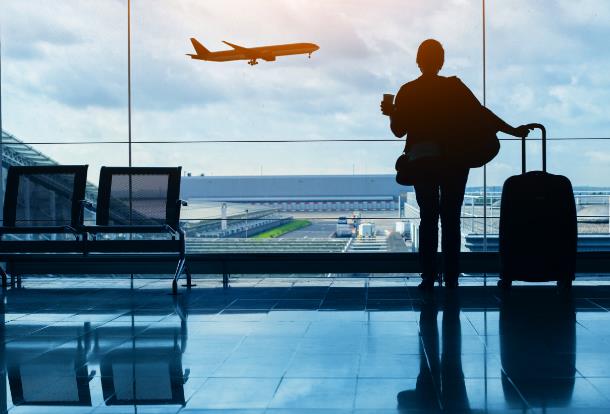Hotel guest loyalty
When it comes to hotels, travelers are considered loyal when they choose to stay at one hotel over other hotels—or with a certain hotel brand over other brands.
Not all loyal guests are of equal value, however. A guest who stays frequently but spends little may be less valuable than a guest who stays infrequently but spends a lot—and vice versa. And a frequent guest who books directly is typically more valuable than a frequent guest who books through an OTA. Part of determining how far to go to earn guest loyalty involves calculating their lifetime value to the hotel or brand.
Generally speaking, frequent guests are valuable to hotels and brands because they generate room demand, helping hotels to increase occupancy, rates and RevPAR. Hotels know frequent guests better than one-timers and can cater to their needs and preferences, which strengthens relationships over time. Furthermore, some loyal guests are brand advocates who provide valuable feedback, write positive reviews and refer other travelers.
The hotel guest loyalty guide
Whether you’re considering launching a loyalty program, revamping an existing program, or looking for ways to build loyalty without a formal program, this guide will help you set your priorities, develop a strategy and optimize results.
How do travelers feel about loyalty programs?
A 2018 report from Oracle, The Loyalty Divide: Operator and Consumer Perspectives, reveals valuable insights into travelers’ attitudes and behavior toward hotel loyalty. The research was conducted with over 13,000 consumers and 500 retail businesses, hotels and restaurants in Australia, Brazil, China, France, Germany, India, Mexico, the UK and the US.
Some of the findings include:
* 30% of respondents said they rarely join loyalty programs, whereas 46% sign up only to select, relevant programs and 24% sign up to every program.
* 86% would be willing to complete questionnaires about their preferences as part of a new program membership so that offers can be tailored to them.
* Younger age groups, in particular, have a propensity to join loyalty programs, and they say that their loyalty is growing— countering the commonly held belief that millennials aren’t loyal to brands.
Many hotel companies struggle with whether or not to introduce a loyalty program. To help decide, ask the following questions:
1. Is your hotel independent or part of a group?
Generally speaking, most large hotel groups operate some type of loyalty program, whereas
many independent hotels and small groups do not because they lack the volume of
frequent guests and the resources required. For mid-sized hotel groups, it’s a matter of balancing the pros and the cons.
2. Are your guests primarily leisure or business travelers?
Loyalty programs tend to be more popular with business travelers than leisure travelers, who travel less frequently and find it harder to accumulate points. In the Oracle survey, 30% of leisure travelers said that earning or redeeming points does not influence their hotel choice, whereas 82% of business travelers said that they are likely to book a hotel where they can earn points.
3. How frequently do travelers return to your destination?
City hotels typically receive more repeat guests and business travelers than resort properties, although there are exceptions. Look at your destination as a whole. Even if your property doesn’t receive a lot of repeat guests, your competitors might.
4. Do your competitors have a loyalty program?
When all else is equal, many travelers will choose a hotel that offers loyalty points over one that does not. It’s important to know what your competitors are offering.
5. Do you have the resources?
A loyalty program can be time-consuming and costly. Do you have sufficient staffing and resources to manage the program over the long term?
6. How effectively could you build loyalty without a formal program?
Finally, would the resources required to operate a loyalty program be better spent in another way? There are lots of ways to earn, recognize and reward guest loyalty without a formal membership program. We’ll explore the options later in this guide.
Advantages
The next step in determining whether or not to launch a loyalty program—or to revamp an existing program—is to weigh the pros and cons. Some of the key advantages can be summarized as follows:
• GUEST RECOGNITION. With a loyalty program, you will have systems and procedures in place for recognizing frequent guests and ensuring that none are overlooked both within your hotel and at participating properties.
• MORE BOOKINGS. The lure of instant perks can be a powerful way to convert travel shoppers into bookers. Moreover, when travelers are familiar with a brand, they are more likely to return. Research from Kalibri Labs found out that 40 to 60% of hotel room bookings came from loyalty members (with the exception of economy brands, for which loyalty bookings were 13 to 15%).
• LOWER COSTS. It’s far less costly to attract repeat guests than to convince travelers to book for the first time. Furthermore, loyalty members are more likely to book directly than through an OTA, especially when offered an incentive. The Kalibri Labs study found that direct bookers were on average 9% more profitable than OTA bookers. Even when hotels offered discounts for booking directly, net average rates were higher than OTA rates.
• INCREMENTAL REVENUE. Frequent guests are more likely to spend money on additional services too. In a survey from Triptease, 40% of hoteliers said that regular direct bookers are their biggest spenders.
• RICH DATA. With a loyalty program, hotels can build rich profiles of guests and track their preferences, interests and spending behavior. When travelers join a program, they are asked for consent to receive communications and promotional offers. This helps ensure compliance with privacy regulations like Europe’s GDPR.
• PERSONALIZATION AND RELEVANCY. The more data hotels collect on guests, the more they can tailor the guest experience, communications and special offers to meet individual needs and interests. Loyalty members can be segmented by lifetime spend, and big spenders can be flagged for VIP treatment.
• INCENTIVIZED BEHAVIOR. Hotels can use loyalty points to encourage and incentivize guest behavior such as using the spa, bar or restaurant, completing a guest survey, declining housekeeping services, using the hotel’s mobile app, and checking in and out online.
• COMMUNITY. Hotels can create an elite database of top loyalty members and invite them to participate in focus groups, ask them for detailed feedback and suggestions about services and amenities, and engage them on social media and on property.
• GROUP AND CORPORATE BUSINESS. Travel managers and event planners are often more inclined to choose a hotel that offers participants loyalty rewards, helping to generate group, corporate and events business.
Disadvantages
The disadvantages of hotel loyalty program may include:
• ADMINISTRATION COSTS. As mentioned, a loyalty program can be time-consuming and resource-intensive, requiring investments in technology, training and labour to track points and redemptions, answer inquiries and engage members.
• MARKETING AND OPERATIONAL COSTS. Loyalty discounts and incentives can increase marketing and distribution costs. Extending perks such as upgrades, amenities, Wi-Fi, food and beverage credits and early check-in/late check-out can burden operations, displace revenue and increase expenditures. Hotels may extend discounts and incentives for bookings that would have been made anyway. And in extreme cases the costs of attracting direct bookings may exceed the costs of OTA commissions.
• COSTS OF REDEMPTION. Points accumulated over time represent a liability on the hotel’s balance sheet. The costs of redeeming rewards can be significant, displacing revenue on rooms that would otherwise be occupied by paying guests. Further, some members may accumulate points at less desirable properties and redeem rewards at more desirable properties, creating an imbalance.
How to earn loyalty with or without a membership program?
Can hotels buy guest loyalty? The short answer: not really. While hotels can use discounts and incentives to entice travelers to make a booking for the first time, if the stay isn’t pleasant, no amount of benefits is likely to bring them back.
Earning loyalty takes time. Hotels must deliver on brand promises and exceed guest expectations consistently, on every stay. Only then can they truly focus on strengthening loyalty using a combination of incentives, recognition and rewards.
Incentives VS. Rewards
An incentive is a reward or benefit offered in advance. It is intended to encourage certain behavior. For example: “Stay with us ten nights this year and receive one complimentary night.” Rewards, on the other hand, are bonuses to recognize behavior after it has occurred. For example: “As a thank-you for staying with us 10 times this year, we’re giving you a free night.”
While both rewards and incentives may be appreciated by guests, rewards compensate behavior that would have occurred anyway, whereas incentives influence behavior. For incentives to work, customers must know the objectives they need to reach, the timeline and the payoff. An example is airline frequent flyers who take flights at the end of the year—sometimes without even leaving the plane—in order to qualify for elite status.
12 ways to build guest loyalty
Whether or not your hotel or brand offers a loyalty program, you can implement systems and procedures to recognize frequent guests and encourage their loyalty. Here are 12 ways to build guest loyalty.
1. INVOLVE STAFF. Travelers may love your hotel’s design, amenities or location, but it’s the employees that keep them coming back. Ensure that staff members understand the value of guest loyalty and are trained and empowered to recognize frequent guests, thank them for their loyalty and extend preferential treatment.
2.TRACK BEHAVIOR. Use the PMS, CRM or loyalty software to keep track of guest room nights, stays and total spend. Identify your most valuable guests and flag them for special treatment.
3.OFFER SPECIAL PERKS. Acknowledge frequents guests with benefits such as:
• Points that can be redeemed for free stays, products and services
• Preferred rates
• Preferred rooms/upgrades
• Priority check-in
• Early check-in/late check-out
• Free Wi-Fi
• Free breakfast or cocktail
• Welcome back note and amenity
• Access to the executive lounge
• Other benefits relevant to your hotel or brand
4.OFFER OPTIONS. Some guests may be motivated by free stays, others by breakfast or drinks, and others by special treatment from staff. Ask about preferences, observe behavior, and record details in the guest profile.
5. OFFER A BEST-RATE GUARANTEE. Ensure that loyal guests receive the best available rates. If they’re willing to pay more, offer incentives to upgrade to a higher category of room.
6. BE CONSISTENT. Travelers are loyal to brands because they like consistency and familiarity. Ensure that all staff at participating hotels comply with loyalty policies and procedures, recognize frequent guests and deliver a consistent experience.
7. RECOGNIZE MILESTONE STAYS. Acknowledge milestone stays such as every fifth stay with an upgrade, amenity or personal note from the general manager. When possible, surprise and delight frequent guests with a thoughtful gift or service.
8. CUSTOMIZE COMMUNICATIONS. Use data from guest profiles to create a list of your most frequent guests and send them exclusive offers to return.
9. RESPECT PRIVACY. Travelers may love your brand, but that doesn’t mean they want to hear from it all the time. Ensure that communications are meaningful, relevant and personalized. Always comply with privacy regulations.
10. SOLICIT FEEDBACK. No one knows your hotel better than your frequent guests. Ask for their input and advice when planning new services, amenities and policies.
11. JOIN A LOYALTY NETWORK. If your hotel or group is too small to operate a loyalty program, consider joining a network like Voilà, Stash, Discovery, Wanup or The Guestbook, affiliating with a soft brand such as Leading Hotels of the World or Preferred Hotels & Resorts, or joining an airline frequent flyer program.
12.LEVERAGE TECHNOLOGY. The PMS can be limited in its ability to create rich guest profiles and track guest activity, feedback and communications across properties within a portfolio. Take advantage of enhanced features offered by CRM systems, guest messaging software and guest feedback management tools.
Read Original Article




